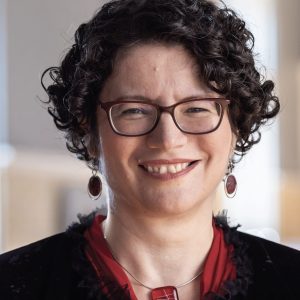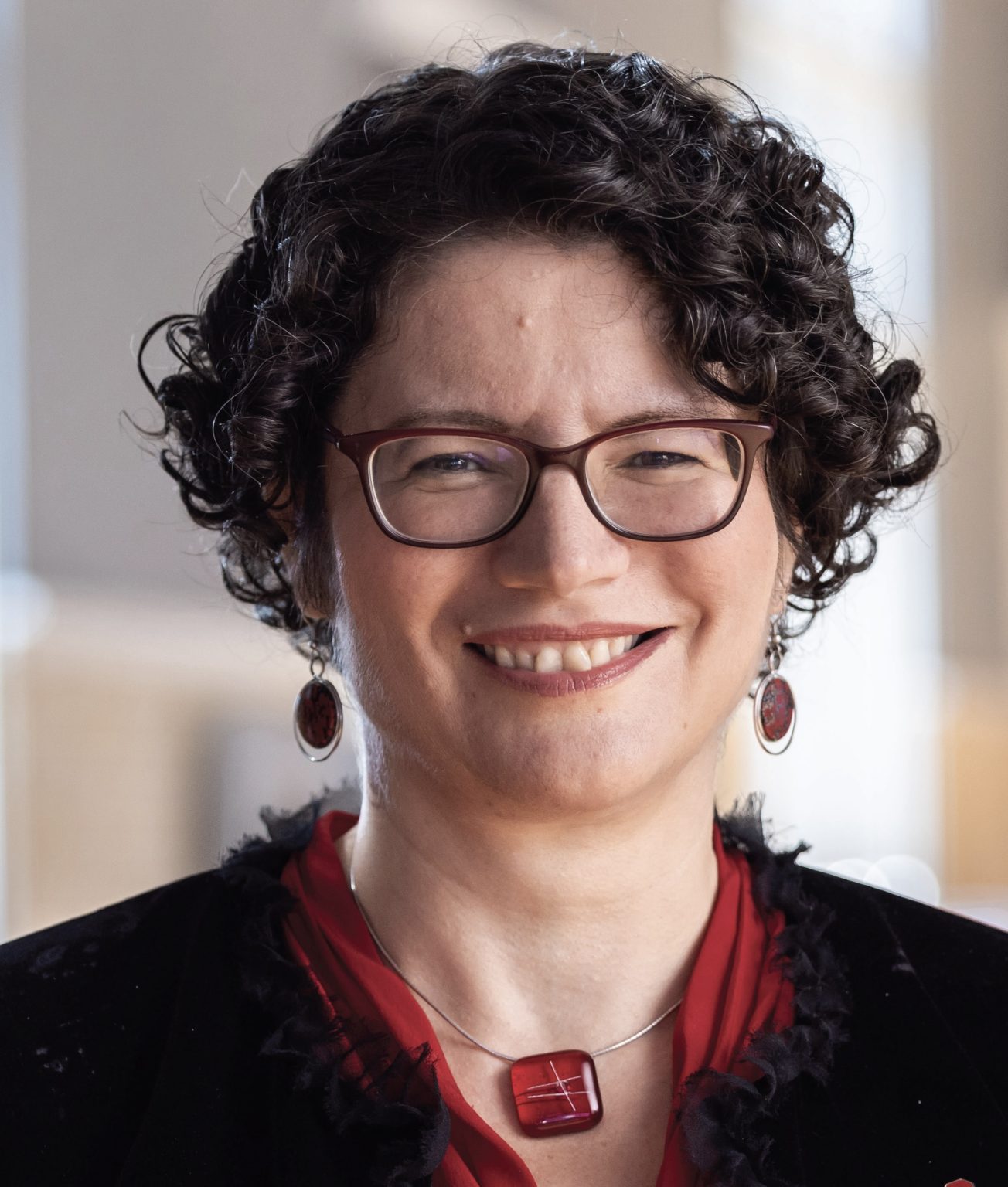HiAI University of Haifa AI Conference
MAY 25-27, 2025
Keynote Speakers

Mor Naaman
Information Science Department, Cornell University
Jacobs Institute, Cornell Tech, USA
Mor Naaman is the Don and Mibs Follett professor of Information Science at the Jacobs Technion-Cornell Institute at Cornell Tech. He currently serves as Cornell Tech’s Associate Dean for Faculty Affairs. Mor leads a research group looking at topics at the intersection of technology, media and democracy. The group applies multidisciplinary techniques — from machine learning to qualitative social science — to study our information ecosystem and its challenges, with a special focus on AI-mediated communication and its impact on society. Before Cornell, Mor was on the faculty at the Rutgers School of Communication and Information, led a research team at Yahoo! Research Berkeley, received a Ph.D. in Computer Science from the Stanford University InfoLab, and played professional basketball for Hapoel Tel Aviv (and other teams). He is also a former startup co-founder, and advises startup companies in social computing, human-centered AI, and related areas. He is a recipient of a NSF Early Faculty CAREER Award, research awards and grants from numerous corporations including Microsoft, Meta and Google, and multiple best paper awards.

Tanya Berger-Wolf
Department of Computer Science & Engineering
The Ohio State University, USA
Dr. Tanya Berger-Wolf is a Professor of Computer Science Engineering, Electrical and Computer Engineering, and Evolution, Ecology, and Organismal Biology at the Ohio State University, where she is also the Director of the Translational Data Analytics Institute. A pioneer in Artificial Intelligence (AI) for ecology, biodiversity, and conservation, she leads the NSF-funded Imageomics Institute and the US-Canada cofunded AI and Biodiversity Change (ABC) Global Center.
Berger-Wolf serves as a scientific advisor for many organizations, including the US National Academies Board on Life Sciences, US National Committee for the International Union of Biological Sciences (IUBS), the Global Partnership on AI (GPAI)/OECD, and The Nature Conservancy. She co-founded the AI for conservation non-profit Wild Me (now part of Conservation X Labs), creator of Wildbook, recognized by UNESCO advancing the UN Sustainable Development Goals. Her contributions have earned numerous accolades, including recognition as the AI 100 Global Thought Leaders by H20.ai.

Tal Luzzatto Knaan
Department of Marine Biology
The University of Haifa, Israel
Dr. Tal Luzzatto Knaan is the head of the Functional Metabolomics Lab at the Leon H. Charney School of Marine Sciences, University of Haifa, and leads the Interdisciplinary Center for Metabolomics and Natural Products. She earned her PhD in Biochemistry from the Hebrew University of Jerusalem and completed her postdoctoral training as a Vaadia-BARD fellow in the lab of Prof. Pieter C. Dorrestein at UC San Diego, where she developed metabolomics-based approaches to study microbial chemical communication and marine chemical diversity. She continued her research with a second fellowship at the University of Haifa, investigating chemical interactions in marine picoplankton. Since establishing her lab in 2019, Dr. Luzzatto Knaan has focused on integrating cutting-edge, multidisciplinary tools to explore the biological role, regulation, diversity, and distribution of natural products in microbes and algae, with an emphasis on their biotechnological and medicinal potential.
HiAI University of Haifa AI Conference
MAY 25-27, 2025
Keynote Speakers
Mor Naaman
Information Science Department, Cornell University
Jacobs Institute, Cornell Tech, USA

Mor Naaman is the Don and Mibs Follett professor of Information Science at the Jacobs Technion-Cornell Institute at Cornell Tech. He currently serves as Cornell Tech’s Associate Dean for Faculty Affairs. Mor leads a research group looking at topics at the intersection of technology, media and democracy. The group applies multidisciplinary techniques — from machine learning to qualitative social science — to study our information ecosystem and its challenges, with a special focus on AI-mediated communication and its impact on society. Before Cornell, Mor was on the faculty at the Rutgers School of Communication and Information, led a research team at Yahoo! Research Berkeley, received a Ph.D. in Computer Science from the Stanford University InfoLab, and played professional basketball for Hapoel Tel Aviv (and other teams). He is also a former startup co-founder, and advises startup companies in social computing, human-centered AI, and related areas. He is a recipient of a NSF Early Faculty CAREER Award, research awards and grants from numerous corporations including Microsoft, Meta and Google, and multiple best paper awards.
Tanya Berger-Wolf
Department of Computer Science & Engineering
The Ohio State University, USA

Dr. Tanya Berger-Wolf is a Professor of Computer Science Engineering, Electrical and Computer Engineering, and Evolution, Ecology, and Organismal Biology at the Ohio State University, where she is also the Director of the Translational Data Analytics Institute. A pioneer in Artificial Intelligence (AI) for ecology, biodiversity, and conservation, she leads the NSF-funded Imageomics Institute and the US-Canada cofunded AI and Biodiversity Change (ABC) Global Center.
Berger-Wolf serves as a scientific advisor for many organizations, including the US National Academies Board on Life Sciences, US National Committee for the International Union of Biological Sciences (IUBS), the Global Partnership on AI (GPAI)/OECD, and The Nature Conservancy. She co-founded the AI for conservation non-profit Wild Me (now part of Conservation X Labs), creator of Wildbook, recognized by UNESCO advancing the UN Sustainable Development Goals. Her contributions have earned numerous accolades, including recognition as the AI 100 Global Thought Leaders by H20.ai.
Tal Luzzatto Knaan
Department of Marine Biology
The University of Haifa, Israel

Dr. Tal Luzzatto Knaan is the head of the Functional Metabolomics Lab at the Leon H. Charney School of Marine Sciences, University of Haifa, and leads the Interdisciplinary Center for Metabolomics and Natural Products. She earned her PhD in Biochemistry from the Hebrew University of Jerusalem and completed her postdoctoral training as a Vaadia-BARD fellow in the lab of Prof. Pieter C. Dorrestein at UC San Diego, where she developed metabolomics-based approaches to study microbial chemical communication and marine chemical diversity. She continued her research with a second fellowship at the University of Haifa, investigating chemical interactions in marine picoplankton. Since establishing her lab in 2019, Dr. Luzzatto Knaan has focused on integrating cutting-edge, multidisciplinary tools to explore the biological role, regulation, diversity, and distribution of natural products in microbes and algae, with an emphasis on their biotechnological and medicinal potential.